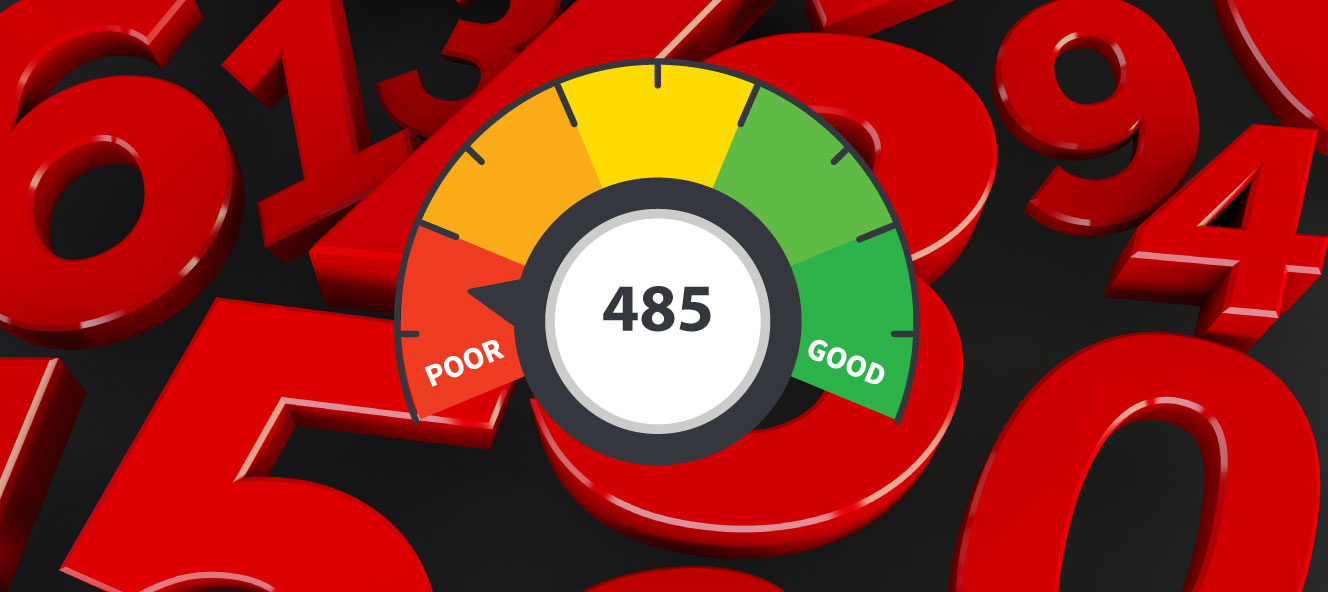What credit score do I need to get a mortgage and are there lenders who do not credit score?
There is no set “magic” number your credit score needs to be to get a mortgage as lenders have different criteria and methodology to determine who they will accept as a borrower. This means the same person could be accepted by one lender but turned down by another, based on the same information.
There are some lenders who do not use a score at all, instead they make a lending decision by individually assessing each application on its own merits.
With those that do score, the exact number you will need varies from lender to lender, as their approaches to risk can vary, so some will require higher scores than others.
As a specialist mortgage broker, we have extensive experience assisting those people who typically have low credit scores. We have access to lenders who do not employ credit scoring but instead examine each case individually. We are here to help you find the perfect mortgage, contact us today to see whether we can help you. Depending on the scale of your credit hiccups, it may be possible to place your mortgage with a standard lender, if not a specialist lender may be able to assist.
Credit scoring explained
When you apply for a mortgage, it is usual for the lender to credit score your application by using one of the three main credit reference agencies in the UK: Experian, Equifax and TransUnion.
These agencies hold information on most adults in the UK which lenders use to determine the risk of lending. The agencies look at the information stored in individual credit files and award points based on the information.
Each agency scores differently and with Experian a good score is 881+, excellent is 961+; with TransUnion: good is 604+ (rating 4), excellent is 628+ (rating 5) and with Equifax: good is 420+ and excellent is 466+.
Information stored in your credit file falls into three main categories:
Public record information - A credit reference check will reveal whether you are listed on the UK electoral roll, whether there are any county court judgements (CCJs) listed against you, whether you have been declared bankrupt, had an individual voluntary arrangement, or been served with a repossession order.
Credit account information - lenders share information about their borrower’s credit history by registering details with credit reference agencies. An individual’s credit file will show whether they have kept their payments up to date in the past, whether they have loans outstanding with other lenders and, if so, whether they have kept the payments up to date.
Search information - the credit file also records credits searches carried out by lenders. Many credit file searches made over a short period of time could be an indication of over-commitment, or possibly fraud.
If your total score reaches a set level, then the lender might accept your application for a mortgage, if you do not score enough points, the lender may decline your application. Different lenders use different criteria to decide whether to grant you a mortgage.
Typically, the method of scoring is straightforward. For instance, using the same bank for 10 years will gain more points than having an account for just one year. You will also score well if you have spent a lot of time at your current address. Anything more than three years usually scores well; anything less does not attract so many points.
Above all though, a track record in managing credit successfully is most likely to count in your favour. Lenders want to know that the person they lend to can handle the debt, and the best way to demonstrate this is to have borrowed before without running into trouble. Missed payments, CCJs, IVA or bankruptcy will have a detrimental impact on your credit score.
However, every lender has different rules which affect what they define as a low credit score and other factors such as your job, income and age will affect a lender’s decision too.
Lenders who do not credit score
There are a handful of specialist lenders who pride themselves on being different to the big-name lenders and banks by having a 'no credit scoring' policy. Instead, they make their decisions based on individual circumstances and will try and gain a better understanding of the events that led to a person’s financial blips. Some of these lenders ignore CCJs and defaults under a certain value and will consider people who have been bankrupt, been on an IVA or debt relief order.
Example scenario
Peter and Emma applied for a mortgage with their bank but were turned down due a default of £200 being listed on Peter’s credit file. Peter is a self-employed carpet fitter and when the Covid-19 lockdown hit in March 2020, Peter’s work dried up as he was unable to go into people's homes. As a consequence, income suffered, and he missed a credit card payment which led to a default notice being issued. This financial misdemeanour was enough for his credit score to be hit and led to his mortgage application being rejected by his bank. Fortunately, a specialist lender stepped in as they could see Peter had an otherwise exemplary credit history and in normal times had a good income and was a creditworthy individual. They disregarded the default and granted a mortgage.
You are more than a number
Life often throws us a curve ball which can lead to financial blips. If you have failed a credit score or do not fit the traditional high street lenders profile, specialist lenders may be able to help. Most of these lenders do not arrange mortgages directly with customers, so you will need to approach them through us.
Contact us today for free initial advice to see whether a mortgage might be within your reach.

